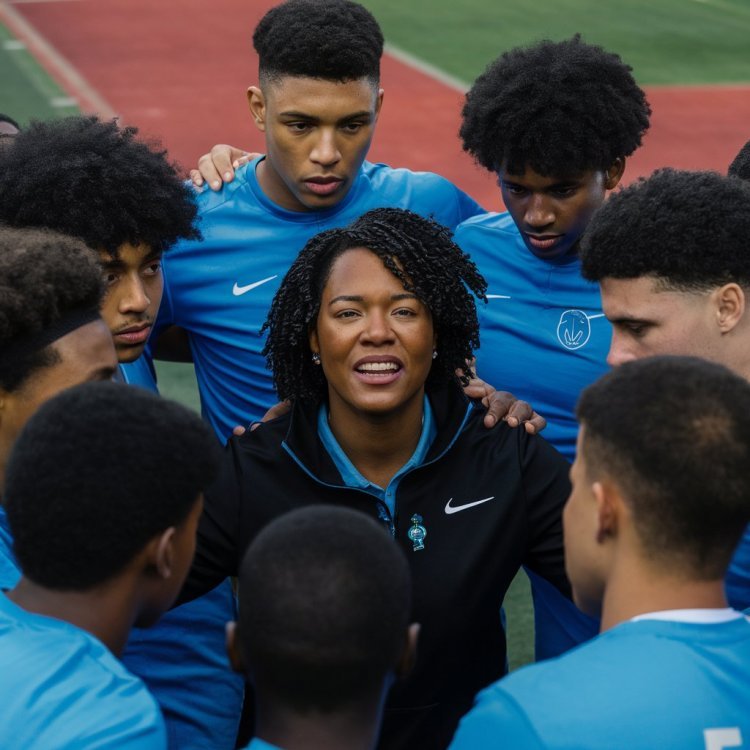Inside the Unique Challenges of Being a First-Year Coach in 2024
Explore the unique challenges faced by first-year coaches in 2024, from building team culture to leveraging technology and managing expectations in the dynamic world of sports coaching.

In the dynamic world of sports, the role of a coach is pivotal not only in strategizing victories but also in shaping team dynamics and player development. For a first-year coach stepping into this realm in 2024, the challenges are as diverse as they are demanding. This article delves into the intricacies and hurdles faced by new coaches, exploring how they navigate these challenges to leave a lasting impact on their teams.
Understanding the Role of a First-Year Coach
A first-year coach enters a team environment with high expectations and the need to establish authority while gaining the trust of players and staff. Unlike seasoned coaches, they lack the advantage of past successes or established rapport, making every decision and interaction crucial in setting the tone for their tenure.
Building Team Culture and Cohesion
One of the primary challenges for a new coach is building a cohesive team culture. This involves not only implementing their coaching philosophy but also understanding the existing dynamics within the team. From fostering open communication to instilling discipline and motivation, the first year sets the foundation for the team’s collective identity and morale.
Adapting Strategies to Fit the Team
Each team possesses its unique strengths, weaknesses, and dynamics. A first-year coach must quickly assess these factors and adapt their coaching strategies accordingly. This adaptability extends beyond game tactics to encompass training methods, player rotations, and even off-field management, ensuring a holistic approach to team development.
Managing Expectations and Pressure
The spotlight on a first-year coach is intense, with stakeholders ranging from fans and management to players scrutinizing every decision. Balancing short-term performance goals with long-term strategic vision is a delicate task, requiring resilience in the face of setbacks and the ability to stay focused amid external pressures.
Nurturing Player Development
Player development is a cornerstone of coaching success, particularly for new coaches aiming to leave a lasting impact. Beyond honing technical skills, they must mentor athletes, foster leadership qualities, and provide emotional support during both victories and defeats. This personalized approach not only enhances individual performance but also strengthens team unity.
Embracing Technological Advancements
In 2024, technology plays a pivotal role in sports coaching, offering tools for performance analysis, injury prevention, and even fan engagement. First-year coaches must embrace these advancements to stay competitive, leveraging data-driven insights to refine strategies and optimize player performance.
Overcoming Transition Challenges
Transitioning from assistant roles or lower divisions to head coaching positions brings its unique challenges. First-year coaches often face adjustments in responsibilities, from administrative duties to media engagements, requiring a multifaceted skill set beyond tactical acumen.
Establishing a Support Network
Navigating the complexities of a first-year coaching role necessitates a robust support network. This includes assistant coaches, sports psychologists, and mentor figures who provide guidance and perspective during challenging times. Building strong relationships within the organization and broader coaching community fosters professional growth and resilience.
Learning from Setbacks and Successes
The first year serves as a steep learning curve for new coaches, marked by both setbacks and successes. Every defeat offers insights into team dynamics and tactical adjustments, while victories validate strategic decisions and boost morale. The ability to reflect on experiences and continuously evolve is crucial in refining coaching approaches and achieving sustained success.
Looking Ahead: Future Prospects for First-Year Coaches
As the sporting landscape evolves, the role of a first-year coach continues to evolve with it. From embracing diversity and inclusion initiatives to navigating evolving league regulations and fan expectations, adaptability remains key to thriving in this competitive arena.
Conclusion
In conclusion, the journey of a first-year coach in 2024 is fraught with challenges and opportunities for growth. From building team culture and managing expectations to leveraging technological advancements and learning from setbacks, the role demands resilience, adaptability, and a deep passion for the sport. By navigating these challenges effectively, first-year coaches not only impact their teams’ performance but also leave a lasting legacy in the realm of sports coaching.
Aspiring coaches entering the field in 2024 must prepare themselves for a dynamic and rewarding journey, where each challenge presents an opportunity to innovate and inspire. With dedication, perseverance, and a commitment to continuous improvement, they can carve their path towards coaching excellence in an ever-evolving sporting landscape.
What's Your Reaction?




















